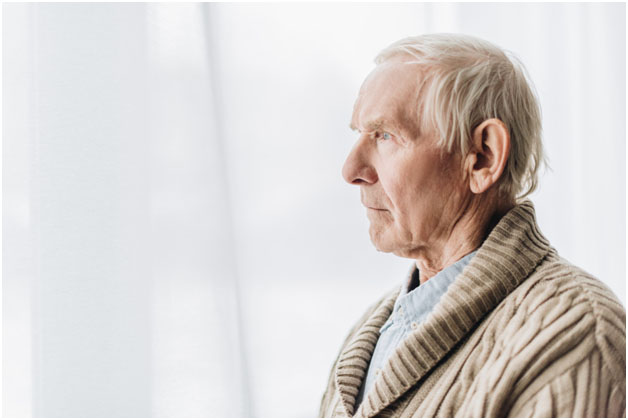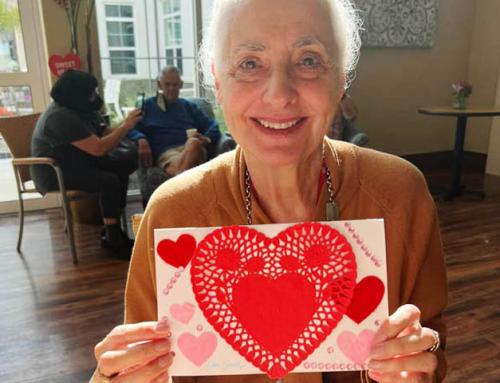
Suspecting your senior loved one has dementia can be very distressing. But the more you know about this syndrome, the more you can do to improve their quality of life.
What is Dementia?
Dementia is not a specific disease but a collection of symptoms, including memory loss, impaired intellectual functions and personality change that result from the condition or the trauma to the brain. Such changes are not part of typical aging and are serious enough to impact daily life, independence, activities and relationships. The most common type of dementia is Alzheimer’s disease, but there are other forms, such as vascular dementia, Lewy Body dementia or alcohol dementia.
Dementia typically presents as a noticeable decline in communication, learning, remembering and problem-solving. These changes can occur either quickly or slowly over time. The patient’s progression and outcome may vary but symptoms are mostly determined by the type of dementia and the brain area affected.
Dementia doesn’t affect every person in the same way. It can present itself differently in each individual and can progress at different rates (Melis, Haaksma and Muniz-Terrera, 2019). Some people may stay in a state of mild decline for a prolonged period, while others may develop several symptoms quickly.
What are the Signs and Symptoms of Dementia?
Memory loss is not a normal nor inevitable part of aging. According to the journal article “Normal Cognitive Aging,” a person’s memory and ability to recall may slow down with age, but the intellect stays the same. Such lapses of benign forgetfulness are commonly known as “senior moments” but don’t interfere with a person’s daily activities or threaten their safety.
Common signs and symptoms of dementia include:
- Memory loss
- Impaired judgment
- Faulty reasoning
- Difficulty with abstract thinking
- Inappropriate behavior
- Loss of communication skills
- Disorientation
- Motor, gait and balance problems
- Agitation, hallucinations, paranoia
- Neglect of personal hygiene and safety
How is Dementia Diagnosed?
There isn’t a universal test for determining if a person has dementia. Doctors base the diagnosis on the patient’s medical history, physical examination, neurological tests and changes in thinking, behavior and function.
The following tests also may be used to diagnose dementia:
Cognitive and neuropsychological tests – Doctors use these tests to assess memory, problem-solving, language and math skills and other mental abilities.
Laboratory tests – These tests include testing a patient’s blood and other fluids and checking levels of various chemicals, hormones and vitamins to discover or rule out possible causes of symptoms.
Brain scans – With these tests, doctors can identify tumors, strokes and other issues that can cause dementia. Scans can also identify changes in the brain’s structure and function.
Psychiatric evaluation – This helps doctors determine if depression or another mental health condition is causing or contributing to the patient’s symptoms.
Genetic tests – Since a known gene defect causes some forms of dementia, genetic testing can help patients know if they are at risk.
How to Know When to Get Help?
Friends and family members often find themselves in a caregiver role for a loved one diagnosed with dementia. While caring for them can be rewarding, it can also be challenging. Also, as people care for someone with dementia, they may stop taking care of their own emotional, mental, and physical wellbeing.
First thing you should understand as a caregiver is that no one is equipped to care for a patient 24/7. Because the expectations and stresses of caregiving can have such notable effects on you as a caregiver, you need to know when it’s time to ask other family members or friends for help. You may also find there are times when you need to seek professional help.
In that case, you can turn to us at Aravilla Clearwater Memory Care, where we offer residents a safe, warm and compassionate environment. To learn more about senior care, check our other blogs, or contact us today!



